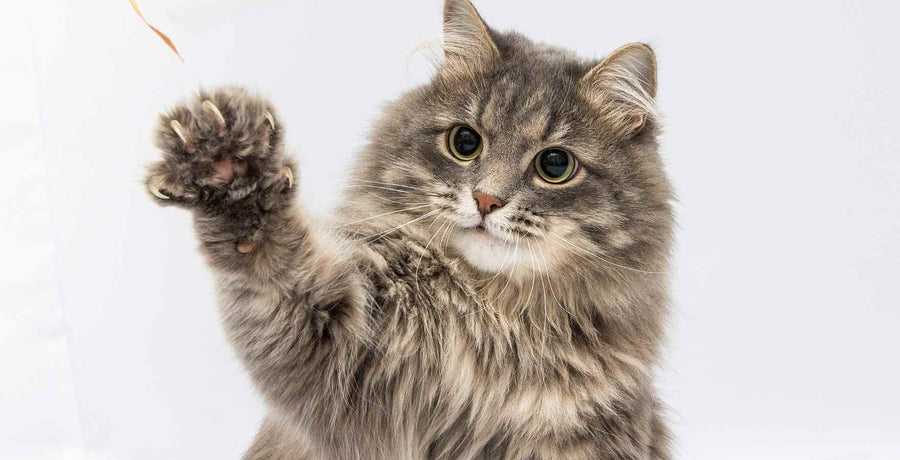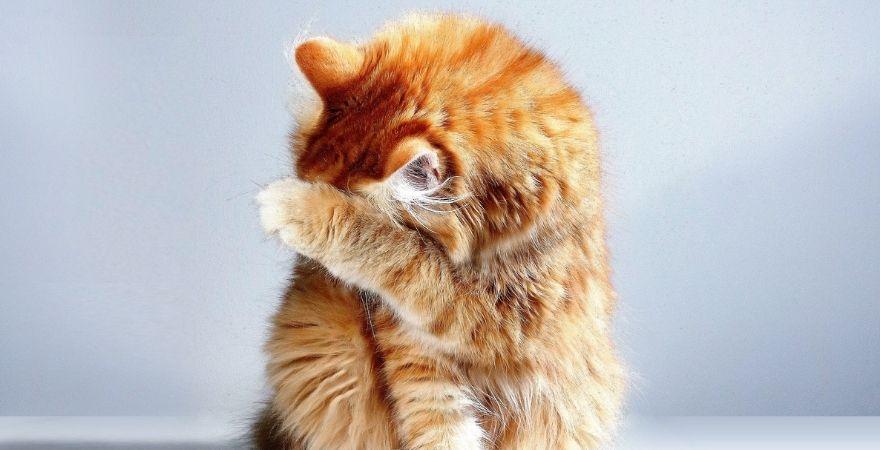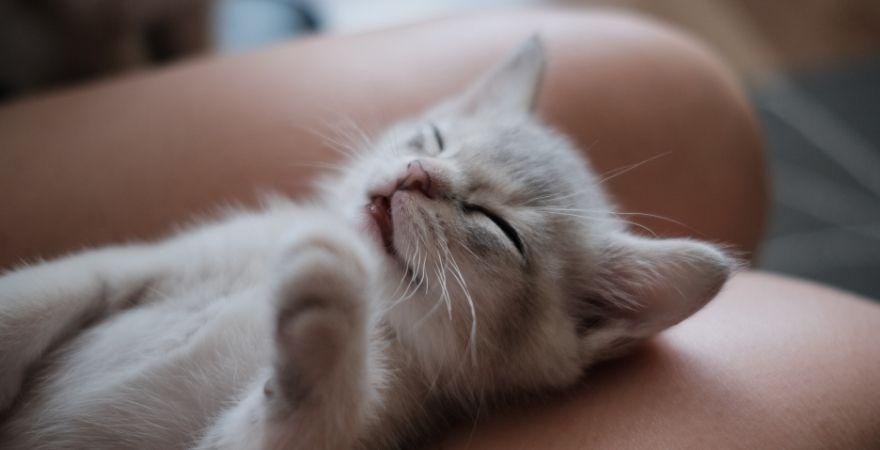Kidney disease is one of the most common health conditions seen in the cat. In fact, roughly 20 to 50% of cats over the age of 15 will have developed chronic renal failure; a staggering number. As so many of our feline friends will go on to develop kidney problems in their senior years, it stands to reason that we should support their renal health in their younger years and beyond. Nutritional supplements can play a big role in maintaining healthy kidneys. When something as simple as a delicious daily supplement can make a big difference in your cat’s life, why not give it a go?
What Causes Kidney Disease in a Cat?
There are many potential causes of kidney disease and these include:
- Tucts such as anti-freeze are two of the most common culprits)
- Infections, which may originate in the kidney or track up from the urinary tract
- Glomerulonephritis, an inflammation that occurs within the kidneys
- Cancers such as Lymphoma
- Blockages caused by e.g. Bladder stones or tumours
- Polycystic Kidney Disease. This is a condition that tends to be diagnosed in younger cats. Pedigrees such as Persians are over-represented and it is sensible to screen breeding parents for this condition as it can be passed on from one generation to the next
Are there Different Types of Kidney Disease?
Kidney disease can be either acute or chronic. The difference is in the timeline. Acute kidney disease occurring rapidly over the course of days and is more often seen in young cats who appear to be in good condition. Toxin ingestion, trauma and bladder blockages can all cause the kidneys to suddenly fail. Those with chronic kidney disease will become unwell over the course of weeks and months and tend to be senior kitties. These kitties may look unwell and be under-weight and off their food.
What Signs Should I be on the Lookout for?
The kidneys work hard to clean or detoxify blood and to produce urine from waste. When they fail, the symptoms are obvious for all to see. These can include:
- Excessive thirst and urination. In the veterinary world, this is called ‘Polyuria/Polydipsia’, or, PU/PD’. This thirst can be extreme and a cat may be constantly drinking from their bowl, seemingly never satisfied.
- A reduced appetite. This tends to occur towards the latter stages of kidney disease.
- Weight loss and a reduced muscle mass. Those affected by kidney disease often have shrunken muscles over their back and hips and find it hard to gain weight.
- Nausea and vomiting. When toxins build up, cats begin to feel quite unwell and may even vomit.
- Lethargy. Those in the final stages of kidney disease tend to lay around and don’t have a great deal of energy.
Can Kidney Disease be Treated?
While some cases of acute kidney failure can be successfully treated, this is not the case for chronic kidney failure. This is a progressive disease that will worsen with time and has no cure. However, there are things that can be done to slow down the progress and to improve a cat’s quality of life. When well-managed, many cats go on to live happily for months and even years after their initial diagnosis.

So, what can I do?
Those who develop kidney disease must always be under the care of a veterinarian who will tailor-make a treatment plan for them. This should consist of a diet that contains a restricted amount of digestible, quality protein and low Phosphorous. Some cats will benefit from regular fluid therapy, which may be done at home or in a hospital setting.
A number of patients may also require medication, such as Phosphate binders, Potassium supplements and drugs to prevent protein being lost in the urine. As kidney disease can go hand in hand with high blood pressure, we should also manage any hypertension with medicine when necessary. On top of this, vasodilators may be used to improve blood flow through the kidneys.
Feeding your cat a dietary supplement to support kidney health is a sensible move. Ideally, this is done even before any kidney disease has been detected. However, dietary supplements can be started at any time, even in progressed kidney disease. It has been scientifically proven that providing the right supplements, such as our Kidney-Vitalize Chews, can vastly benefit renal health.
Why Give a Supplement?
Kidney-Vitalize Chews are palatable chews that contain potent, immunotonic herbs which have been proven in several studies to support kidney function. Available in both duck and chicken flavour, even fussy cats will be tempted to eat this tempting ‘treat’.
The two active ingredients in these chews are Astragalus Root Extract and Rehmannia Root extract. These ‘super herbs’ have been known to practitioners of Chinese medicine for centuries, though it has taken the western world a little longer to catch on!
Astragalus can help support the immune system, reduce inflammation and act as a general tonic for the kidneys. Some research has indicated it can also help to prevent protein lost through the kidneys. Rehmannia can enhance blood flow to the kidneys and may reduce hypertension (high blood pressure). When used in combination, these two herbs appear to be even more effective.
The Bottom Line
While your cat receiving a diagnosis of kidney disease can be devastating, it is reassuring to know that there are things we can do to help support them. Supplements such as Kidney-Vitalize Chews play an important role in the multi-modal therapy of those with kidney disease. Importantly, they can be used for those with established kidney disease as well as cats who may be at risk of developing kidney disease in later life.
Dr Linda Simon MVB MRCVS
Scruffy Paws In House Vet
Dr Linda Simon MVB MRCVS
Scruffy Paws In House Vet
Dr. Linda Simon MVB MRCVS is a locum veterinary surgeon who has worked in London for the past 8 years. She graduated top of her class in small animal medicine from UCD, Dublin. She is currently a member of the Royal College of Veterinary Surgeons.







